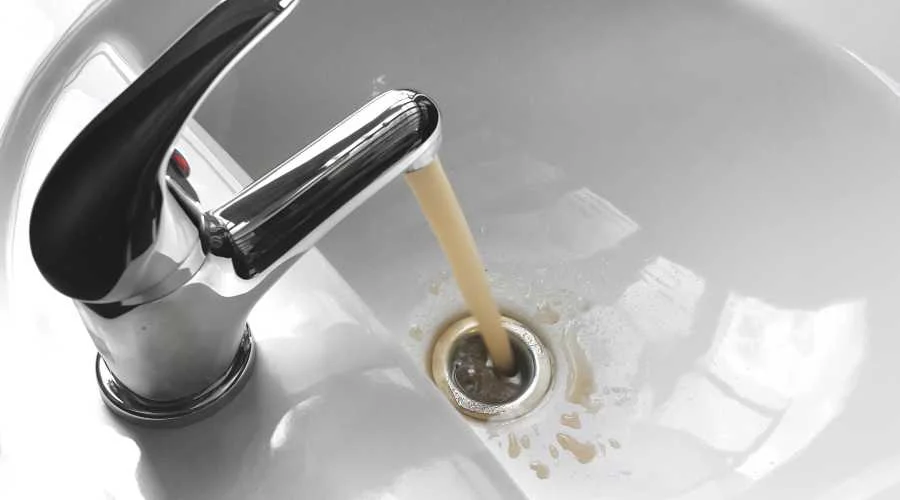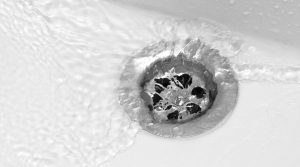Key Takeaways:
- New Jersey tap water is generally safe, but household factors can affect its quality.
- Common tap water issues include cloudiness, metallic taste, odors, and residue.
- Diagnosing water quality problems involves visual inspections and professional testing.
- Solutions range from flushing systems to replacing corroded pipes.
- Consulting a professional plumber ensures safe, high-quality water.
Understanding Tap Water Quality in New Jersey
Tap water in New Jersey is usually safe to drink due to municipal filtration and treatment processes. However, household plumbing and environmental factors can introduce contaminants, affecting its taste, smell, and appearance. Recognizing potential issues early can prevent health risks and plumbing damage.
Why Does My Tap Water Look Cloudy?
Cloudy or milky tap water can be alarming, but the cause is often harmless:
- Trapped Air: Tiny air bubbles can give water a cloudy appearance, especially when pressure changes occur. Letting the water sit for a few minutes allows the bubbles to dissipate.
- Hard Water: Excess minerals, such as calcium and magnesium, cause cloudiness. A malfunctioning water softener may contribute to this issue.
- Pipe Contamination: Older or corroded pipes may release sand, dirt, or rust particles into the water. If cloudiness persists, a professional inspection is advisable.
Why Does My Water Taste Metallic?
A metallic taste in tap water is typically due to dissolved minerals or metals:
- Iron, Zinc, or Manganese: These naturally occurring elements can seep into the water supply.
- Rust and Corrosion: Aging pipes may degrade, introducing metallic flavors.
- Water Heater Sediment: If only hot water has a metallic taste, flushing the water heater might resolve the problem.
Why Does My Tap Water Smell?
Odors in tap water indicate possible contamination:
- Metallic Smell: Often due to the same minerals causing a metallic taste.
- Musty or Moldy Smell: Could be caused by algae blooms in the local water supply or stagnant water in pipes.
- Rotten Egg Smell: Typically a result of bacterial growth in the water heater, producing hydrogen sulfide gas.
- Salty Taste or Smell: May result from excessive water softener salt or seawater intrusion in coastal areas.
Why Does My Water Leave Spots or Residue?
Residue from tap water is a sign of excess minerals or contamination:
- Brown or Orange Stains: Indicate high levels of iron or copper, often due to pipe corrosion.
- Chalky White Residue: Caused by hard water minerals such as calcium and magnesium.
- Slippery Film on Hands or Dishes: A sign of over-softened water.
How Can I Test My Tap Water?
If you notice changes in your water’s taste, smell, or appearance, testing is crucial:
- DIY Home Water Test Kits: Available at home improvement stores, these kits check for common contaminants like chlorine, lead, and bacteria.
- Municipal Water Reports: Local water providers often publish annual reports detailing water quality.
- Professional Water Testing: Certified labs can provide comprehensive analyses for contaminants, ensuring safe water consumption.
How to Improve Tap Water Quality
Depending on the issue, different solutions can enhance your water’s quality:
- Flushing the Water Heater: Removes sediment buildup that may cause taste or odor problems.
- Installing a Water Softener: Reduces hardness by removing excess minerals.
- Using a Carbon Filter: Helps eliminate chlorine, bad tastes, and odors.
- Pipe Inspection and Replacement: Addresses corrosion-related contamination.
- Boiling Water: A temporary solution for microbial contamination.
Frequently Asked Questions (FAQ)
Is New Jersey Tap Water Safe to Drink?
Yes, tap water in New Jersey meets federal safety standards. However, household plumbing, old pipes, or environmental changes may introduce contaminants.
Why Does My Tap Water Turn White and Then Clear?
The white, cloudy appearance is usually due to air bubbles from water pressure changes. If it clears up in minutes, it’s harmless.
What Should I Do If My Water Tastes Like Metal?
Flush your pipes by running the tap for a few minutes. If the problem persists, test your water for heavy metals and consult a plumber.
How Do I Remove Rust Stains from My Sink or Bathtub?
Using a mixture of vinegar and baking soda can help remove stains. If rust stains are persistent, your pipes may need replacement.
Can Boiling Water Remove Contaminants?
Boiling removes bacteria and viruses but does not eliminate heavy metals, chemicals, or hard water minerals.
Should I Get a Water Filtration System?
If your water has persistent quality issues, a filtration system can help. Options include carbon filters, reverse osmosis, and water softeners.
When to Call a Professional
If your tap water shows persistent cloudiness, strong odors, discoloration, or residue buildup, contact a professional plumber. They can assess and address the root cause, ensuring safe and clean water for your home.
For expert water testing and plumbing solutions in Jersey City, call BJC Plumbers Jersey City today. Our team ensures your water is clean, clear, and safe for your family.







